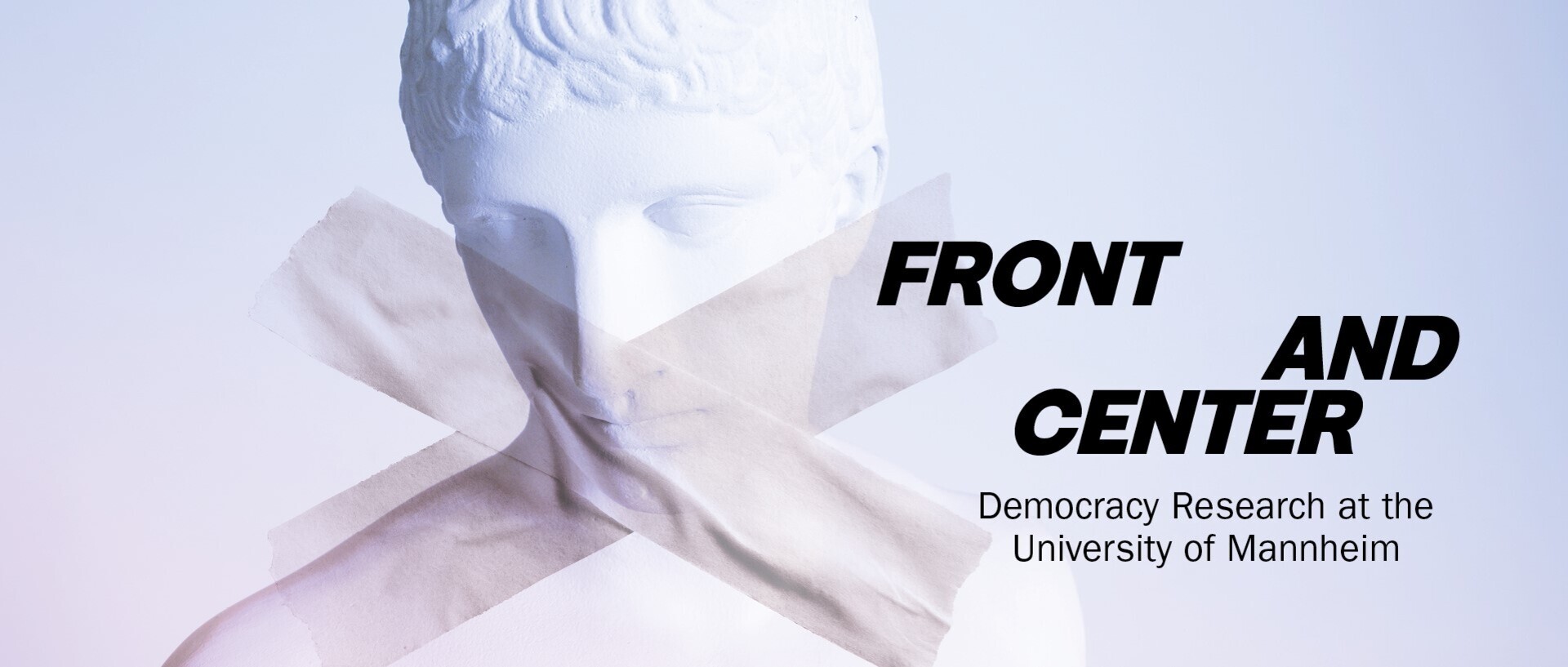Stress Testing Human Rights
Sabine Carey is Professor of Political Science, International Relations at the University of Mannheim, a position she has held since 2010. She also serves as Director of the Mannheim Centre for European Social Research (MZES). Currently, she is leading a large-scale research project exploring public attitudes toward human rights with her team at the Technical University of Munich and the University of Southampton.

A glance at Sabine Carey’s website makes one thing clear: the Chair of Political Science, International Relations is a hub of academic activity. Her CV alone is impressive: the 51-year-old has earned a dual degree from the University of Konstanz and the University of North Texas, a PhD from the University of Essex, and a research fellowship at Harvard. Before coming to Mannheim, she spent eight years teaching and researching at the University of Nottingham. Often described as a conflict researcher, Carey focuses on topics such as state terrorism and counterinsurgency. On her website, each major research project has its own section—with titles ranging from “Pro-Government Militias” to “Journalist Killings.” Another project stands out: “Perceptions of Human Rights.”
This three-year project, funded by the German Research Foundation (DFG), is set to run through the end of 2026. “We want to better understand how people in Germany view human rights—and how we might strengthen public support for human rights in times of crisis,” Carey explains. Her team uses innovative survey experiments to gather data. The first wave of surveys, launched in August 2024, drew over 6,000 participants. “Our initial goal was to get a general sense of who tends to support—or reject—human rights protections, and what people actually mean when they talk about human rights,” she says.
Factual arguments help
One scenario presented in the survey involved a fictional protest: peaceful, but noisy and blocking traffic. In the story, the police respond with excessive force. Participants were then asked whether such police violence should go unpunished. The twist? The protesters were randomly described as either a right-wing group, a Muslim group, or climate activists. “A clear pattern emerged,” Carey reports. “When respondents viewed the protesters as an ‘out-group’—a group they didn’t identify with—they were more willing to justify infringements on that group’s rights.”

The surprise came later: the same respondents who initially supported the use of police force were also the most likely to change their minds. “When we emphasized afterward that letting excessive police violence go unpunished violates a fundamental right—namely, everyone’s right to peaceful assembly in a democratic society—they mostly reconsidered their position,” Carey says. Her takeaway: “When people feel threatened, they often support curtailing the rights of others based on gut instinct or perceived short-term gain. But the good news is: it helps to calmly explain again and again that human rights are not something you earn—they’re something everyone is entitled to, regardless of background, religion, or political views.”
Two other findings are less encouraging, according to the professor. One concerns the general attitude towards compromise: Over half of respondents said they see political compromise as a betrayal of the people. “That’s deeply troubling for any democracy,” Carey notes. “If a majority of the people views compromise as something negative, it’s no wonder coalition governments collapse because politicians aren’t so keen on compromising—knowing their base won’t reward them for making concessions.”
Another red flag: 24 percent of respondents agreed—or tended to agree—that it would be better to have a strong leader who tells people what to do. Among 18- to 26-year-olds, that share climbed to over a third. “We deliberately used the word Anführer—a loaded term in German, reminiscent of Führer, the title used by Hitler,” Carey says. “I was deeply alarmed by how much support that received. It’s now crucial to study whether this is just a phase tied to age—or a deeper trend.”
Findings Suggest Clear Takeaways
Even at this early stage of the project, her findings suggest clear takeaways for educational institutions and public communication. “We need to emphasize that human rights are universal. If we accept limiting them for one group today, it might be another group tomorrow. In the long run, that can have negative consequences—for everyone. And that’s exactly what people need to understand,” Carey concludes, summarizing the initial findings.
The team is currently working on a second survey to find out which wording people find most appealing—and most worth defending—when it comes to human rights. Because even though the level of support for human rights in Germany is still statistically high, there are signs that people respond even more positively when these rights are described as “democratic rights.” “I’m very curious to see what else we’ll learn from this next round of surveys,” Carey says with a smile. “Maybe we’ll find that if we want to boost support for human rights, we should simply start calling them democratic rights.” One thing’s for sure: the Chair of Political Science, International Relations remains extremely busy. This summer, for instance, Carey is presenting the team’s findings at multiple academic conferences.
Text: Jule Leger / August 2025
